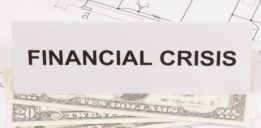EUR to USD Is Set to Move Lower Than Parity
The U.S. Federal Reserve appears to be ever closer to raising interest rates. Does this mean that the EUR to USD exchange will reach parity? Indeed, the dollar-euro parity is the biggest question debated in international foreign exchange desks. Many analysts believe the dollar could even rise above the euro in 2017.
Over the past four weeks alone, The EUR to USD has lost four percent as the euro succumbed to upward pressure in the Greenback. The difference between the two currencies now stands at a mere $1.06, a bottom that the euro had not hit since at least 12 months ago. At that time, the big market fear was Brexit.
Donald Trump’s election as president of the United States has abruptly changed expectations in the foreign exchange market. Better-than-expected U.S. economic growth and the return of inflation, have fueled the EURUSD’s descent. Should the Fed—as many expect—increase the interest rates at the December meeting of the Federal Open Market Committee (FOMC), the U.S. dollar can only surge.
Higher interest rates mean that the United States will attract international capital. Foreign investors now will have a better reason to land in America. They might find higher returns. Meanwhile, as the EUR to USD moves ever closer to a 1:1 relationship, the European Central Bank (ECB) seems happy to let the euro slide.
Some in Europe see this as a positive. EURUSD parity favors the European economy, says the logic, because it might increase the competitiveness of European-made goods. Given that inflation remains dangerously low, the ECB wants more stimulus. What this means is that the EUR to USD could drop below parity.
The euro may fall to $ 0.98 as early as within the next six months. That’s what Citigroup Inc (NYSE:C) thinks. The bank now expects that the euro will fall still just $0.98 over the next six to 12 months. The expectation comes in the wake of President-elect Donald Trump’s proposed expansionary policies. (Source: “Euro, Dollar Flirt With Parity,” The Wall Street Journal, November 20, 2016.)
These developments could support both economic growth and inflationary pressure. The Fed would respond with a self-replenishing rate hike mechanism. The risk is the new phenomenon known as “Trumpflation,” which might be described as a combination of rising inflation and expansionary economic policies. Meanwhile, the ECB’s hopes of export-fueled growth might be dashed by trade protectionism in the United States.






